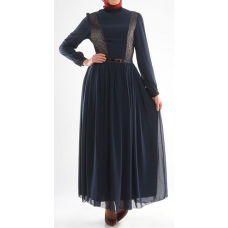What do Islamic notions modesty entail in the business of selling modest clothing? Sarah Farrukh spoke with the Jabir Tarin, founder of Maqbool Islamic Clothing, about the story behind the brand and the unique challenges of catering to both faith and fashion.
![]() Tell us the story of Maqbool Islamic Clothing and the inspiration behind this line.
Tell us the story of Maqbool Islamic Clothing and the inspiration behind this line.
Jabir Tarin: Maqbool Islamic Clothing was the fruit of seven years of thinking, calculating, and considering opening an Islamic clothing store in the Bay Area where there are so many Muslims and so few Muslim clothing stores to service this burgeoning population. As a young boy in my teens, I remember repeatedly asking my father for the money to start run my own business. After being shot down every time, I turned to uncles and friends, but to no avail. Finally, after many years of saving and envisioning what could be, my brother and I, along with a friend, decided to open Maqbool Islamic Clothing with our personal savings. The process of launching our business was grueling, with one obstacle after another. Family, friends, government, legal, you name it, we went through it.
The vision of opening an Islamic clothing store rather than a halal restaurant, or a Muslim bookstore sprung from a 15-year-old boy who was deeply interested in and proud of his faith, but had nowhere to turn to for Muslim garb that made him feel as though he was representing his faith through his choice of clothing. I used to see my mother wearing her hijab and abaya (a robe-like dress) and I felt she was a beacon of inspiration for all young Muslim women. I saw my father sporting a beard and kufi (a rounded, brimless cap) and thought he looked handsome and proud. I wanted for all Muslim men and women to have access to a variety of modest styles worn in their native Muslim countries.
![]() You have an impressive line of men’s clothing. What has been the challenge in creating a distinct style for Muslim men?
You have an impressive line of men’s clothing. What has been the challenge in creating a distinct style for Muslim men?
Jabir Tarin: Maqbool is unique in that we carry products from distributors and wholesalers from all four corners of the globe. Styles you would normally only find in the country of origin–we carry them. This variety is one of our greatest assets as a store catering to a diverse clientele, and is the reason the Bay Area Muslim community has given us positive reviews.
![]() Is having a brand exclusively for modest clothing always economically viable? In other words, do you find that the market is always receptive to Maqbool’s rendition of “modest clothing?”
Is having a brand exclusively for modest clothing always economically viable? In other words, do you find that the market is always receptive to Maqbool’s rendition of “modest clothing?”
Jabir Tarin: When we picture a modest man or woman, an image of a fully covered, bashful and often introverted person comes to mind. However, we, as a store and as Muslims, realize we’re no longer dealing with the children of Afghanistan, Pakistan, and Egypt etc. We’re catering to the children of America who typically want to wear clothing that is in keeping with the Islamic guidelines of modesty, but also follows the fashion trends of the moment. We do not see these two goals as incompatible. In fact, I would go so far as to say that it is unreasonable for parents to expect their children to don exactly what their mother and father wore 20 years ago in their native land!
Companies like Silk Route for ladies and Lawung for men have completely changed the look of Islamic attire in the 21st century. By offering modest pieces for both men and women that are reminiscent of Muslim countries in Africa, South East Asia and the Middle East, but designed with Western fashion in mind, Maqbool remains viable in tough economy.
Sarah Farrukh is an Web & Publishing Editor at Altmuslimah. She blogs about faith and books at A Muslimah Writes.





